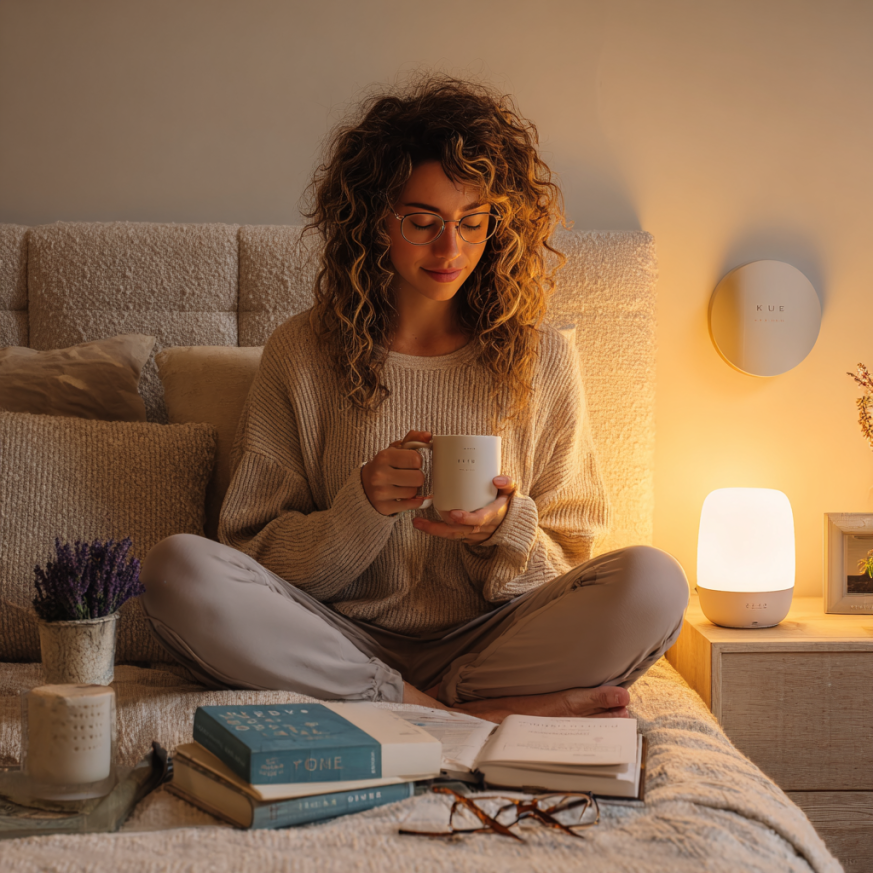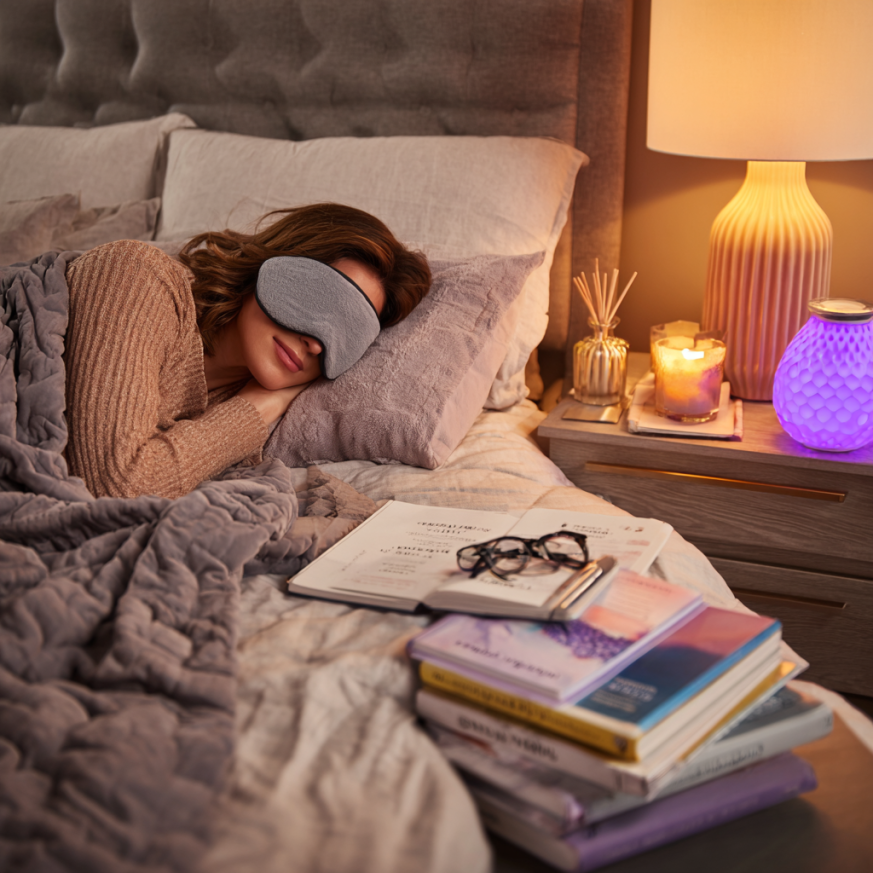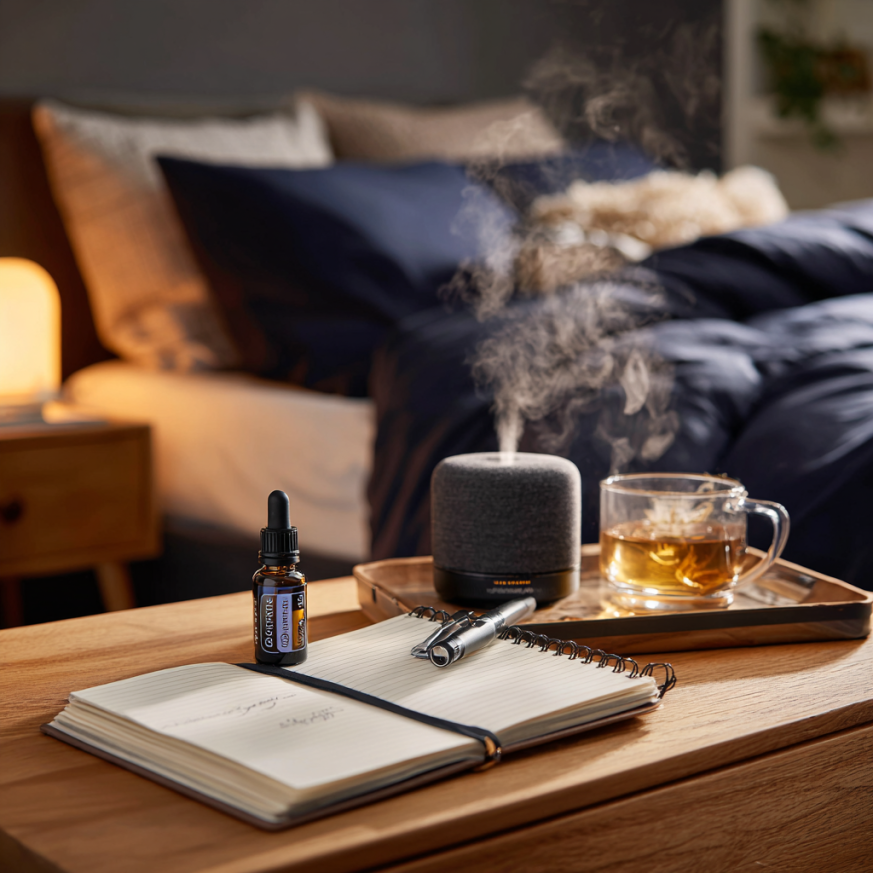Enhance Memory and Cognitive Function Through Sleep
Want to enhance memory and cognitive function naturally? Sleep plays a powerful role in boosting brain health. Here’s how better sleep strengthens recall, sharpens focus, and supports long-term mental clarity.
Key Takeaways: Enhance Memory and Cognitive Function
- Quality sleep enhances memory and cognitive function by consolidating new information into long-term storage.
- Deep (slow-wave) and REM sleep are the power duo for recall, creativity, and problem-solving.
- Simple cues—scents, sounds, and consistent routines—can support memory consolidation while you sleep.
- Healthy sleep habits protect long-term brain health and reduce risks linked to chronic sleep loss.
- Comfortable, breathable, and sustainable bedding can improve sleep quality and next-day mental clarity.
Ever had a morning where your brain feels foggy and you can’t remember where you put your keys? The fix might be as simple—and cozy—as a better night’s sleep. If you’re aiming to enhance memory and cognitive function, prioritizing your sleep routine is a smart first step.

Why Sleep Is Your Brain’s Best Friend
Short answer: Sleep resets the brain so you can focus, learn, and think clearly the next day. It’s the maintenance window your mind relies on.
When you sleep well, attention, learning, and decision-making improve. Skimping on rest triggers brain fog and sluggish problem-solving. Research shows that quality sleep helps consolidate memories, making new information stick. The Sleep Foundation also notes that sleep deprivation undermines memory, attention, and reasoning—three pillars of sharp cognition.

The Magic of Memory Consolidation
Short answer: Your brain files and strengthens memories while you sleep—especially during deep sleep and REM.
During slow-wave sleep, your brain replays new information and transfers it from short-term “inbox” areas to long-term storage. REM sleep supports creative connections and insight, which is why problems can feel easier in the morning. For more mood and clarity context, see our guide on how sleep affects your brain. The Sleep Foundation explains that REM sleep is crucial for creativity and problem-solving.
Easy Ways to Enhance Memory During Sleep
💤 Cue Your Brain With Smells and Sounds
Short answer: Pair a gentle scent or sound with study time—and replay it during sleep—to reinforce learning.
Memory can be strengthened through sensory cues. For example, use lavender or rose while studying, then diffuse the same scent overnight to nudge recall. Likewise, a soft, steady tone associated with your learning session can help your brain “rehearse” the material. Learn more scent strategies in Sleep Scents: How Aromatherapy Can Enhance Your Sleep Quality.

🧠 Tune Into Your Brain Waves
Short answer: Gentle auditory rhythms can encourage the slow oscillations and sleep spindles tied to memory consolidation.
While high-tech approaches exist, you don’t need a lab. Soft, rhythmic sounds can support deeper, more stable sleep—fertile ground for memory. For practical options, explore Sleep Sound Solutions: White Noise Machines and More. You can also fine-tune your setup with our temperature-regulating bedding guide to keep sleep continuous.

Busting the “More Sleep Is Always Better” Myth
Short answer: Aim for the sweet spot—usually 7–9 hours. Oversleeping can leave you groggy, while undersleeping hurts cognition.
Quality beats quantity. A consistent schedule, relaxing wind-down, and comfortable sleep environment typically deliver better recall and mental clarity than simply logging extra hours.
The Risks of Skimping on Sleep
Short answer: Chronic sleep loss impairs attention, learning, and memory and may raise the risk of long-term cognitive decline.
The NIH highlights strong links between inadequate sleep and impaired memory, attention, and brain resilience. Protect your brain by smoothing out stimulants at night and optimizing your routine. If caffeine timing trips you up, skim our tips in How Sleep Affects Your Brain and pair them with white-noise or scent strategies for a double benefit.
Eco-Friendly Bedding and Better Sleep
Short answer: Breathable, low-irritant bedding supports deeper, steadier sleep—fuel for next-day focus and recall.
Your bedding can influence how fast you fall asleep and how often you wake. Choosing organic bedding, sustainable bedding, or eco-conscious sheets reduces exposure to potential irritants, improves airflow, and keeps temperature steadier—factors that support uninterrupted slow-wave and REM sleep. Start with Organic Bedding Benefits and explore vetted sustainable bedding brands that feel good and sleep even better.
Buyer’s Guide: Fabrics, Certifications, and Setups That Support Brain-Friendly Sleep
Short answer: Favor breathable weaves and trustworthy certifications; then build a consistent, low-stimulation routine around them.
Best fabric choices: Look for percale cotton, linen, or bamboo-derived viscose for airflow and moisture management. These help stabilize temperature—a key lever for deeper stages tied to memory. If you run hot, see our tips on temperature-regulating bedding.
Certifications to know: GOTS (for organic fibers), OEKO-TEX STANDARD 100 (tested for harmful substances), and FSC (for responsibly sourced wood in bedroom furniture). Certifications don’t guarantee comfort, but they add trust that aligns with healthy sleep goals.
Setup that sticks: Pair breathable sheets with a supportive mattress and low-noise environment. Add a repeating wind-down (dim lights, light stretch, scent or sound cue), and keep wake-up times steady—even on weekends. These basics compound into better recall and daylong mental clarity.
Final Thoughts: Enhance Memory and Cognitive Function With Sleep
Your brain thrives on quality sleep. From sharper recall to clearer thinking, deep, consistent rest gives your mind a nightly reset. Combine smart routines with breathable, comfortable bedding and you’ll create the conditions for reliable, long-term cognitive benefits. For more cozy, research-informed guidance, explore Cozy Bed Quarters—your trusted home for sleep and bedroom insights.
FAQ
- Can better sleep really improve memory?
- Yes. High-quality sleep consolidates memories, improving recall and learning the next day.
- What sleep stage is most important for memory?
- Deep (slow-wave) sleep and REM both matter—deep sleep stabilizes memories, while REM supports creativity and problem-solving.
- Are there natural ways to boost memory during sleep?
- Yes. Pair a scent or soft sound with study time and replay it overnight to reinforce learning, and keep a consistent sleep schedule.
Related Reading
- How Sleep Affects Your Brain & Memory: The Science
- Sleep Scents: How Aromatherapy Can Enhance Your Sleep Quality
- Sleep Sound Solutions: White Noise Machines and More
- How Memory and Sleep Are Connected – Sleep Foundation
- REM Sleep: Why It Matters – Sleep Foundation
- Pick Bed Sheets Based on How You Sleep – Parachute Home























